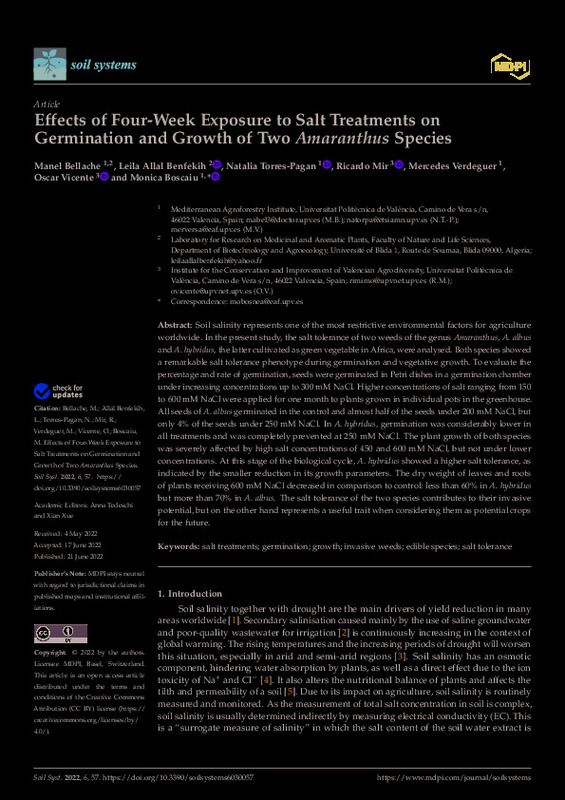|
Resumen:
|
[EN] Soil salinity represents one of the most restrictive environmental factors for agriculture worldwide. In the present study, the salt tolerance of two weeds of the genus Amaranthus, A. albus and A. hybridus, the latter ...[+]
[EN] Soil salinity represents one of the most restrictive environmental factors for agriculture worldwide. In the present study, the salt tolerance of two weeds of the genus Amaranthus, A. albus and A. hybridus, the latter cultivated as green vegetable in Africa, were analysed. Both species showed a remarkable salt tolerance phenotype during germination and vegetative growth. To evaluate the percentage and rate of germination, seeds were germinated in Petri dishes in a germination chamber under increasing concentrations up to 300 mM NaCl. Higher concentrations of salt ranging from 150 to 600 mM NaCl were applied for one month to plants grown in individual pots in the greenhouse. All seeds of A. albus germinated in the control and almost half of the seeds under 200 mM NaCl, but only 4% of the seeds under 250 mM NaCl. In A. hybridus, germination was considerably lower in
all treatments and was completely prevented at 250 mM NaCl. The plant growth of both species was severely affected by high salt concentrations of 450 and 600 mM NaCl, but not under lower
concentrations. At this stage of the biological cycle, A. hybridus showed a higher salt tolerance, as indicated by the smaller reduction in its growth parameters. The dry weight of leaves and roots of plants receiving 600 mM NaCl decreased in comparison to control: less than 60% in A. hybridus but more than 70% in A. albus. The salt tolerance of the two species contributes to their invasive potential, but on the other hand represents a useful trait when considering them as potential crops for the future.
[-]
|









